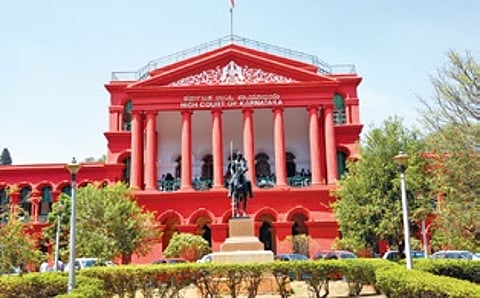

BENGALURU: The Karnataka High Court on Thursday kept in abeyance till the next date of hearing, the order passed by the state government on August 30, 2023, authorising the Karnataka State Waqf Board to issue marriage certificates to Muslim applicants. It is difficult to perceive that marriage certificates issued by the Waqf Board (WB) and its officers could be used for any official purpose, the court added.
The division bench of Chief Justice NV Anjaria and Justice K V Aravind passed the detailed interim order after hearing a public interest litigation filed by Alam Pasha, founder of The Helping Citizen and People’s Court, a non-government organisation, questioning the legality of the impugned order issued by the state government in 2023, conferring powers to the Waqf Board to register Muslim marriages. Further hearing is adjourned to January 7.
The court noted that prima facie reading of the provisions of the WB Act, the Board does not have the power to issue marriage certificates. The impugned order, although operative for long, is clearly beyond the powers and amounts to usurping of powers which are not available under law, much less under the Waqf Act.
Prima facie, it is difficult to justify the issue of marriage certificates by the Board.
The impugned order is not backed by provisions of the Act. In view of this, important issues raised in the petition require consideration and are necessary to secure a reply and stand of the WB, and the state of Karnataka is also duty-bound to justify how the order was issued, the court said.
The court observed that issuance of marriage certificates is neither a matter connected with the WB nor incidental to the administration of the Board. Applicants are to be facilitated with marriage certificates by the Board, to alleviate difficulties faced by them is no ground to justify the Board to issue marriage certificates when the Waqf Act and its provisions do not confer such powers.
The petitioner contended that the impugned order dated August 30, 2023, was issued by the Minority, Waqf and Haj department, conferring powers to the Board for marriage registration under the WB Act, 1995, despite the Karnataka Marriages (Registration and Miscellaneous Provisions) Act, 1976, which provides a uniform law for the registration of marriages and certain other matters.
The impugned order will likely agitate and affect the functions and duties conferred on the Board, which does not have the statutory power, mandate or authority to register Muslim marriages, he alleged.